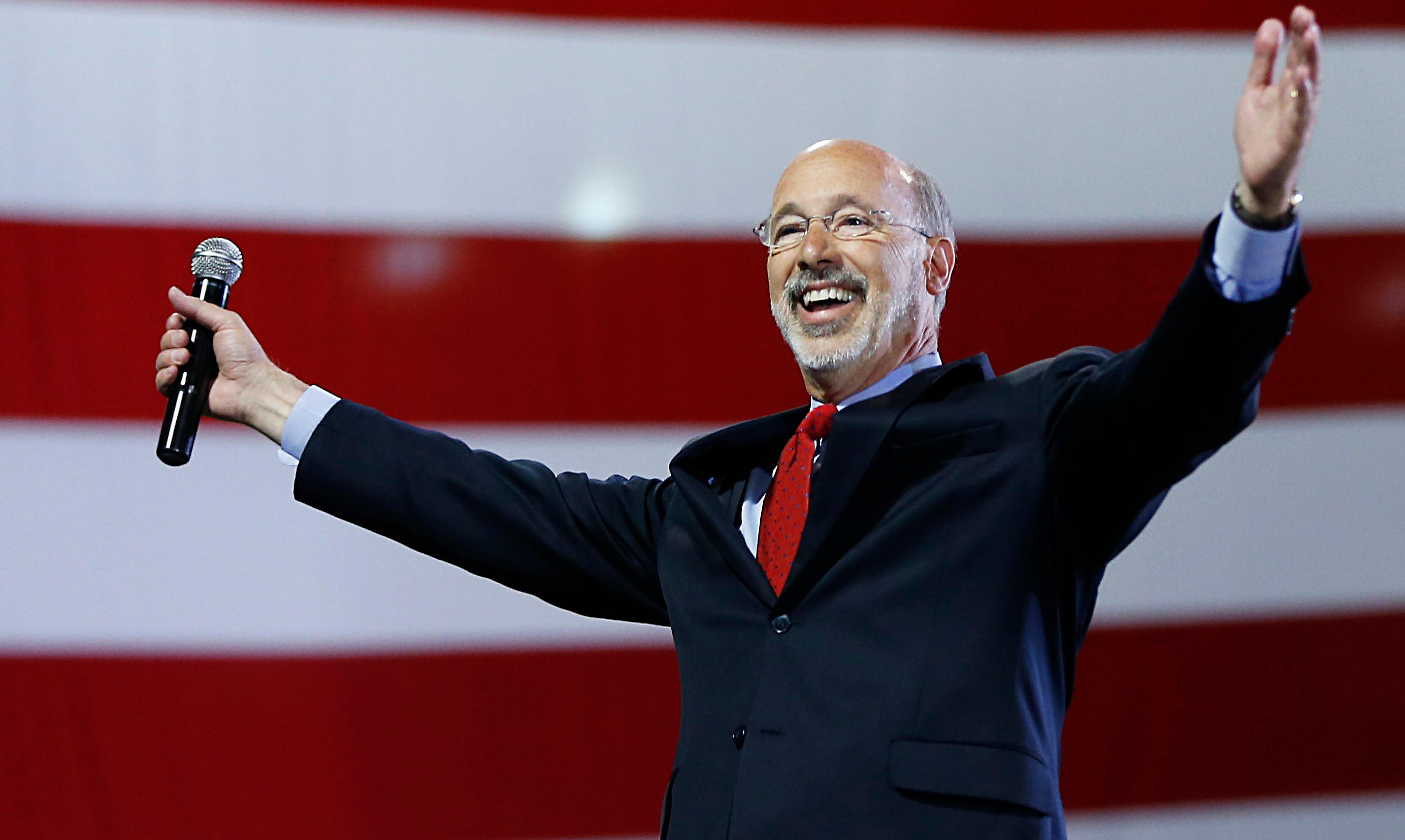Six lessons from the Pa. primary

Democratic gubernatorial nominee Tom Wolf celebrates his victory Tuesday. (Matt Rourke/AP Photo)
Why six? That’s how many I could think of.
1. It’s money that matters. Tom Wolf may be just what Pennsylvania needs, but nobody would know it if he hadn’t put $10 million of his own money into the race and tapped wealthy friends for plenty more.Money doesn’t guarantee victory, but in a state this big with seven media markets, somebody who can pop his ads on screens all over the state while his opponents are counting pennies has a huge edge.
2. Wag the dog. Buying tons of ad time won’t matter if you don’t fill it with effective commercials. The Wolf TV spots produced by Philadelphia-based media consultant Saul Shorr were masterfully done, and people remembered them. He built up such a positive image of his candidate that voters were skeptical of attack ads that followed, and he countered those with smartly done response ads. It’s not hard to think of other ads we saw this spring that just didn’t connect.
3. Doc always wins. The political reach of John Dougherty, leader of the International Brotherhood of Electrical Workers Local 98, seems to grow with every election. Local 98 put $200,000 into a losing Allyson Schwartz campaign, but that hardly matters to a union that can contribute $2 million a year to political campaigns. The union’s former political director, Ed Neilson, won a seat on Philadelphia City Council Tuesday, and Doc’s horse in the hotly contested 13th Congressional District primary, Brendan Boyle, is on his way to Washington next year.
4. Your in-laws can’t win it for you. Former U.S. Rep. Marjorie Margolies entered the Democratic primary for the 13th Congressional District seat with some advantages – name recognition and close ties to the Clinton family from her stint in Congress 20 years ago and the marriage of her son, Marc, to Chelsea Clinton. The Clintons helped her with fundraising, and Bill came for a rally and appeared in a TV ad. But Margolies herself ran a bad campaign, skipping early debates and letting expensive consultants drain her budget. She lost.
5. Super PACs – not just for presidential races anymore. Building a Better PA, a super PAC formed earlier this year and funded by labor unions, weighed in the 13th Congressional District contest in a big way in the last two weeks of the campaign. The PAC ran a TV ad defending Boyle when opponents were attacking his record on reproductive rights. Federal records show the committee spent $342,500 on those ads for Boyle, who beat Margolies and two others to capture the nomination.
6. Hit the streets. Just as important as the super PAC spending to Boyle’s win was a robust field effort that began months before the election. Volunteers canvassed homes, speaking with voters and collecting data for later use. The campaign also fielded a massive and well-organized street force on Election Day. One measure of its effectiveness is the result in Philadelphia’s 56th Ward, where Democratic ward leader John Sabatina backed Margolies: Boyle got 2,032 votes, Margolies 968.
WHYY is your source for fact-based, in-depth journalism and information. As a nonprofit organization, we rely on financial support from readers like you. Please give today.


